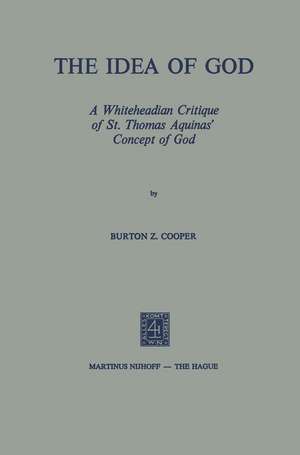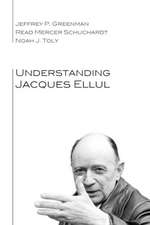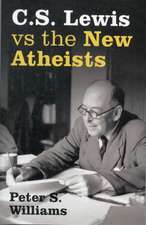The Idea of God: A Whiteheadian Critique of St. Thomas Aquinas’ Concept of God
Autor Burton Z. Cooperen Limba Engleză Paperback – 1974
Preț: 379.09 lei
Nou
Puncte Express: 569
Preț estimativ în valută:
72.56€ • 74.77$ • 61.26£
72.56€ • 74.77$ • 61.26£
Carte tipărită la comandă
Livrare economică 03-17 martie
Preluare comenzi: 021 569.72.76
Specificații
ISBN-13: 9789401503792
ISBN-10: 9401503796
Pagini: 140
Ilustrații: 123 p.
Dimensiuni: 155 x 235 x 7 mm
Greutate: 0.2 kg
Ediția:1974
Editura: SPRINGER NETHERLANDS
Colecția Springer
Locul publicării:Dordrecht, Netherlands
ISBN-10: 9401503796
Pagini: 140
Ilustrații: 123 p.
Dimensiuni: 155 x 235 x 7 mm
Greutate: 0.2 kg
Ediția:1974
Editura: SPRINGER NETHERLANDS
Colecția Springer
Locul publicării:Dordrecht, Netherlands
Public țintă
ResearchCuprins
I. The Tension in Patristic Theology.- II God’s Being and the Logic of Knowing.- III. God’s Will and Ontological Arbitrariness.- IV. Power and Creativity — Part I.- V. Power and Creativity — Part II.- VI. Simplicity and Perfection.- VII Trinitarian Theology.- VIII. Redemption and Process Theism.










